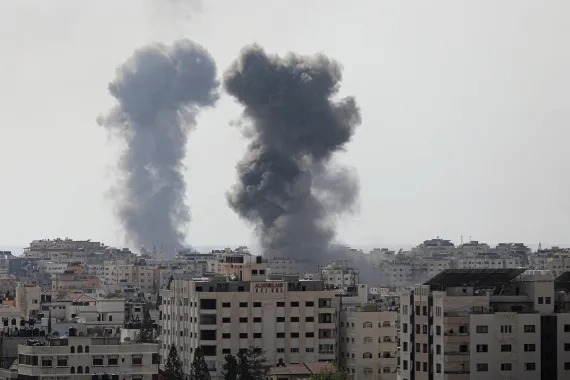In the midst of the ongoing Gaza conflict, the United States, under the leadership of President Joe Biden, is intensifying efforts to secure the release of more than 240 captives held by Hamas. A senior Biden administration official has emphasized the necessity of a “very significant pause” in the fighting to facilitate this crucial mission. Despite fervent endeavors, there is no concrete agreement in place at this juncture, keeping the fate of the hostages in limbo.
High-Stakes Diplomacy in Motion
The situation in Gaza remains fraught with uncertainty as diplomatic maneuvers take center stage. The senior Biden administration official, who chose to remain anonymous, spoke of their commitment to do “everything we possibly can” to ensure the safe return of the captives. They revealed that “indirect engagement” is underway, reflecting the gravity of the situation. Transitioning from talk to action is the ultimate goal, though the official underscores the absence of guarantees regarding both the “if” and “when” aspects of this operation.
While the Biden administration is striving for a resolution, Israeli Prime Minister Benjamin Netanyahu has taken a firm stance. After meeting with US Secretary of State Antony Blinken in Tel Aviv, Netanyahu categorically ruled out any temporary ceasefire until Hamas releases all the captives. He reiterated Israel’s determination to continue with its military operations “full force” until every hostage is free. This stark contrast in perspectives highlights the complex challenges of mediating in the ongoing crisis.
Israeli Prime Minister Stands Firm
The refusal of a temporary ceasefire by Prime Minister Netanyahu reflects his unwavering commitment to the release of the captives. Netanyahu’s position aligns with his determination to prioritize the safety and freedom of Israeli citizens held by Hamas. The statement came after discussions with Blinken, where the Israeli leader provided a clear message regarding the conditions for a ceasefire. This insistence on an “all or nothing” approach sets the stage for an arduous diplomatic process.
Challenges in Securing Hostage Release
Securing the release of the more than 240 captives is a complex task, marred by various challenges. The Biden official revealed that Hamas had provided a list of injured Palestinians for evacuation. However, the list was met with resistance from the US, Israel, and Egypt, as one-third of the names were identified as Hamas members. This further complicates the negotiation process, as the involvement of alleged militants in the evacuation request raises concerns about the safety and security of the hostages.
In conclusion, as the Gaza conflict rages on, the Biden administration’s pursuit of a “very significant pause” in fighting to free the captives stands as a pivotal but uncertain endeavor. The contrasting stances of the US and Israeli leaderships underscore the complexities of mediating in a crisis where lives hang in the balance. While hopes persist for a peaceful resolution, the road ahead remains fraught with challenges and uncertainties.
















